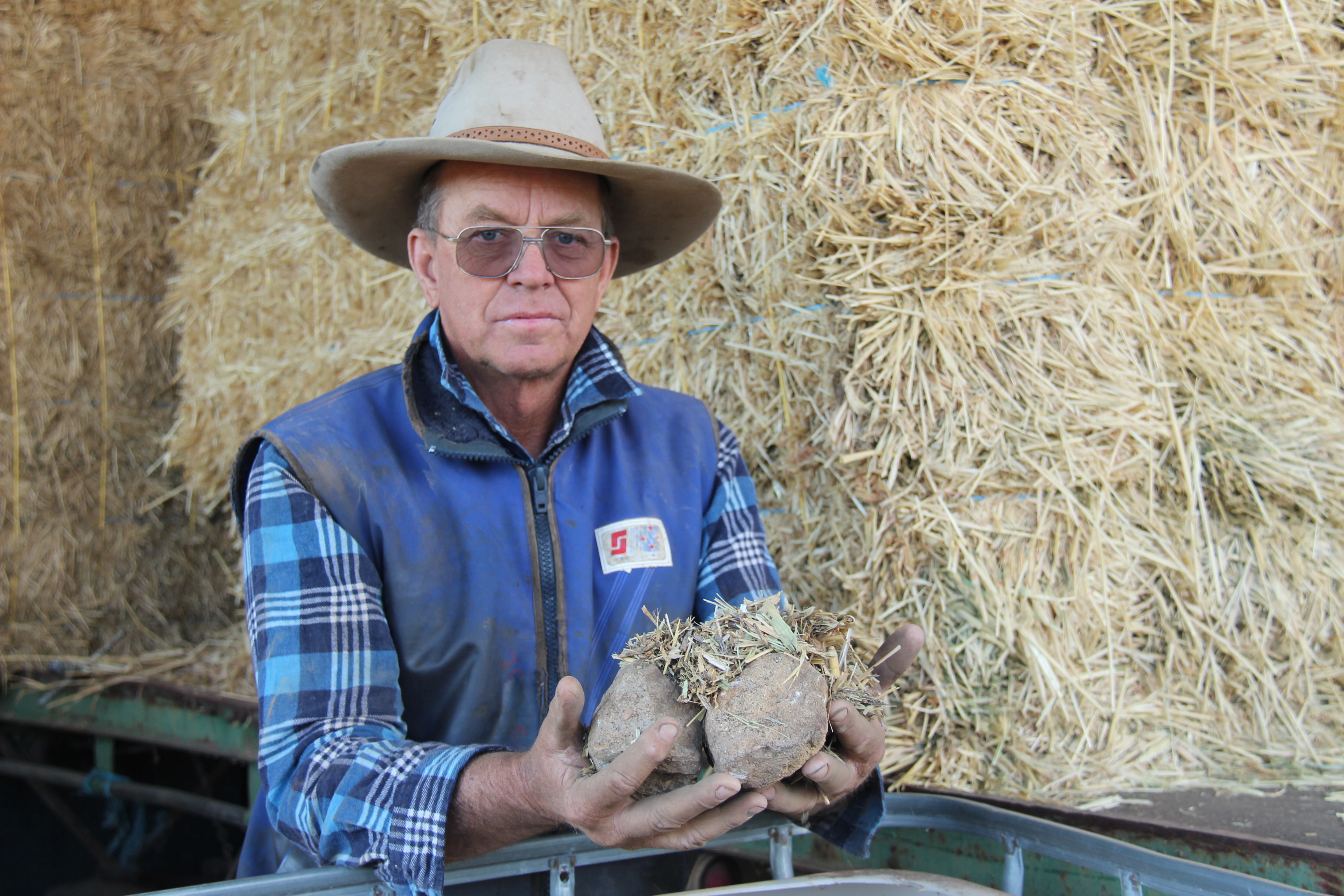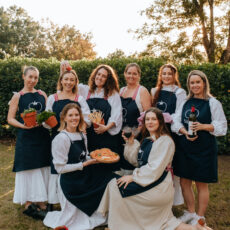Hay is in scarce supply with the ongoing drought, so you can only imagine Roger McDowell’s frustration when he discovered that the bales of hay he planned on feeding his cattle were “about 40 per cent rocks and dirt”.
“When we came back from feeding, the only thing white were our teeth and the whites of our eyes,” said Pilliga farmer Mr McDowell.
“We put a bale out and we were filthy,” he said.
Mr McDowell said he doesn’t want to ‘name, names’ and get involved in a blame-game but he wants to share his story to warn other farmers to be cautious when ordering and buying hay.
Mr McDowell said he ordered 112 bales of hay in January/February this year for the price of $350 per tonne plus GST.
“When I first saw the hay, it looked alright until we opened it up and found the rocks and the dirt.
“We wanted green feed for the heifers but then we saw how bad it was.
“I phoned the seller and said that I’d pay for the hay but I didn’t want to pay for it with the weight of the dirt and rocks, and he point-blank refused.
“I asked him three times to come and have a look at it and he refused each time,” said Mr McDowell.
Mr McDowell explained how he weighed the hay to determine roughly how much was dirt and rocks.
“We put the bales in a high feeder with a pan below, then we collected the dirt and rocks from the pan for two bales into an empty shuttle and weighed it on a weighbridge.
“We compared that to the weight of two unopened bales and subtracted the weight of the dirt and rock.”
Mr McDowell is a hard-working grazier and farmer at ‘Tregoen’, the property where his family have farmed since 1907.
For Mr McDowell drought isn’t new, and he prides himself on being a smart and adaptable farmer.
“This is the longest drought in living memory,” he said.
“We’re in uncharted territory, the place can handle a two year drought but this is a three-year drought.”
Mr McDowell said he’s made a number of decisions to combat the drought. He’s sold a lot of stock and has halved his breeding herd.
“We wanted to get the numbers down because we haven’t had a wet summer since 2011/12, which we rely on.
“We sold some cattle in early 2017 because the wet of 2016 reminded me of the wet of 1978 and we had two dry years after that in ’79 and ’80.”
Mr McDowell said he started to buy hay for his cattle in November 2018 after he’d exhausted his own supply.
“Ninety nine per cent of the sellers are good honest people but there’s other people getting away with selling an inferior product at a high price, because farmers are so desperate they’ll take it, even if it’s a load of ‘you know what’, it’s just preying on people’s desperation,” said Mr McDowell.
“I was shocked by it, it’s not something I would ever do.
“If there’s a fault with something I was selling, I would tell people and make sure they knew what the quality of the product was.”
“I’m not desperate, I still had other hay because I won’t let myself run out but I will stand up for my rights.”
Mr McDowell is resilient and still has a smile on his face, especially after receiving rain in March this year, the rain enabled him to plant some wheat and oats.
“If we get two more inches of rain on this crop then it would really take the pressure off and help to fatten everything up.
“For me farming is a passion, it’s in the breed,” he said.
To order photos from this page click here










